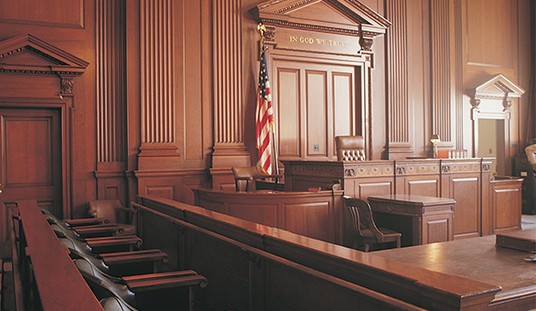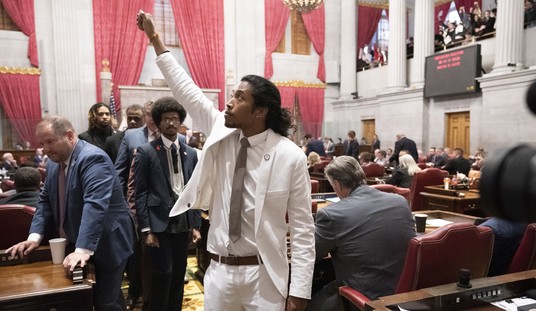A number of lawsuits, ranging from particular components such as the mandate to purchase healthcare to the bill in its entirety, have challenged the constitutionality of the Patient Protection and Affordable Care Act, aka ObamaCare. The rulings so far have been split both for and against the legislation.
But the passage of the bill in the first place has unwittingly displayed a deeper Constitutional flaw for all to see. And now you’ll be able to explain that flaw to your fellow citizens.
The American experiment, started in earnest in 1776 and codified with the passage of the U.S. Constitution in 1787, is often held up as the shining example of democracy. What a false premise!
A more in-depth study of history as it actually was, as opposed to how it’s been rewritten, reveals the Founders detested democracy. Quoting Benjamin Rush’s July 21, 1789 letter to John Adams,
“A simple democracy, or an unbalanced republic, is one of the greatest of evils.”
The Founders were learned individuals, knowledgeable in things that have not changed since the dawn of creation – namely political history and human nature. Their study of these two constants showed that pure democracy in its unchecked sense was just as dangerous as tyranny. To paraphrase the old analogy, pure democracy is four wolves and one sheep voting on what’s for dinner.
In contrast, the Founders set out to protect individual rights, such as those of our one sheep. From their studies they recognized the natural tendency for democracies to devolve from stability to a tyranny of the majority as the majority began to democratically demand more and more from the outnumbered minority – whether it was money, property, status, or ultimately life itself.
To counter this recognized human characteristic, the Founders instead established a balanced Constitutional Republic – “…if (we) can keep it” according to Ben Franklin. You likely already know one of the keys to this Constitutional Republic is the complex system of checks and balances incorporated into the Constitution.
Traditional government classes usually discuss the checks and balances within the Federal system – namely how the legislative, executive, and judicial branches are each structured to restrain each other. Not often discussed, however, is the comparable system the Founders established between the individual citizen, the sovereign State governments, and the Federal (not national) government.
And this is where the passage of ObamaCare reveals the Constitutional flaw – in the check and balance between the State and Federal governments.
The Founders established a Federal government who’s role they envisioned as limited in scope. From Federalist No. 45, written by James Madison and published in the Independent Journal on Saturday, January 26, 1788:
“The powers delegated by the proposed Constitution to the federal government, are few and defined. Those which are to remain in the State governments are numerous and indefinite. The former will be exercised principally on external objects, as war, peace, negotiation, and foreign commerce…” (emphasis added).
Many anti-Federalists argued the proposed Constitution would abrogate individuals’ rights, with the Federal government eventually usurping them entirely. As a result, many states, led by Massachusetts, passed what amounted to a conditional ratification of the Constitution – predicated on including a Bill of Rights to protect individual rights against Federal government encroachment.
With the subsequent passage of the Bill of Rights, the Founders had addressed the desired check and balance between the Federal government and the individual citizen. But what about between the Federal and State governments?
The Constitution had already included checks and balances between the State and Federal governments. It was at the New York state ratifying convention that Alexander Hamilton, a well-known supporter of a strong national government, argued:
“This balance between the National and State governments ought to be dwelt on with peculiar attention, as it is of the utmost importance. It forms a double security to the people. If one encroaches on their rights they will find a powerful protection in the other. Indeed, they will both be prevented from overpassing their constitutional limits by a certain rivalship, which will ever subsist between them.” (emphasis added)
So how does ObamaCare pass when a majority of the states have joined a lawsuit against its Constitutionality? Does the “rivalship” to which Hamilton referred still exist?
That the lawsuit was filed suggests emphatically the rivalship still exists, but as Paul Harvey might have said, here’s the “rest of the story.”
One could confidently argue that health care doesn’t fall into the “external objects” category expressed by Madison in Federalist No. 45. Yet it was passed by both the House and the Senate, and signed into law by the President. Therefore, we can conclude the passage of ObamaCare is, to paraphrase Hamilton, an encroachment by the Federal government onto the States’ rights.
So if the rivalship still exists, and yet the encroachment occurred, one must presume the check and balance system between the States and the Federal government is not working. The dirty little secret is that this check and balance system has been broken for some time – about 98 years to be exact.
The original Constitution provided for members of the House to be elected by the citizens of their respective Districts and members of the Senate to be elected by their respective state legislatures. Because no piece of legislation could become law without being passed by both the House and the Senate, the Senate, representing its State constituency could effectively block any piece of legislation.
The Senate – i.e. the State governments – thus had a way to assert their sovereignty on each piece of proposed Federal legislation. This provided a check against the Federal government’s encroachment into realms outside the “external objects” described in Federalist No. 45. It also effectively provided the states with veto power over unfunded/underfunded mandates.
That changed on April 8, 1913 when the 17th Amendment to the U.S. Constitution was adopted. This amendment provides that U.S. Senators be elected by a popular vote of a state’s citizens rather than elected by its legislature.
Originally an idea to address unfilled Senatorial vacancies in the mid-1800s, it was picked up by populist and progressive politicians as well as publishers and gained momentum around the turn of the century. This was largely in reaction to Senatorial corruption, including the infamous Sen. William A. Clark (D-MT).
The result? The States’ ability to prevent Federal encroachment on what were Constitutionally defined States’ rights was dramatically inhibited. Thus, the 17th Amendment unwittingly introduced a flaw into the Constitution, one that wasn’t originally there, and one that has undoubtedly has made our Constitutional Republic weaker.
Need proof? Look at the last century of programs such as:
• ObamaCare;
• No Child Left Behind;
• Medicare Prescription Drug, Improvement, and Modernization Act;
• Supplemental Nutrition Assistance Program (food stamps;
• Welfare; and
• The Federal Minimum Wage.
None of these items would qualify under Madison’s “external objects” test.
In addition, actions such as land takings by the Federal government to be managed by agencies such as the Bureau of Land Management, the U.S. Forest Service, National Park Service, and U.S. Fish and Wildlife Service have grown geometrically during this same period of time.
And in both the program and land taking cases, the States’ rights have been corrosively eroded and often the states have suffered financially. All this was instituted without the States having their originally-designated Constitutional voice at the “legislative table.”
In the program case, many of these program costs are borne directly by the states. In the takings case, these can have adverse economic and tax consequences for the State. In fact, one could argue these direct and indirect costs are in part responsible for the dire financial circumstances currently facing many states.
Revisionist historical analysis and texts have suggested the 17th Amendment, by putting the electoral power in “the hands of the people,” is a democratic step forward. But as our Founders understood so well, without the State governments’ check on the Federal government, provided by the Senate prior to the 17th Amendment, the U.S. Government could outgrow its Constitutionally-prescribed constraints.
And that overgrown Federal government can, and has, overwhelmed both State and individual rights the Founders sought to protect with our Constitution.
Educating ourselves to the Founders’ intent, not just with the checks and balances provided within the Federal government but also between the Federal government, the States, and the citizenry, is the best chance we have to put the Federal government back into its proper Constitutional constraints and prevent future “ObamaCares.” Only then can we return to being that “shining city on the hill.”








Join the conversation as a VIP Member